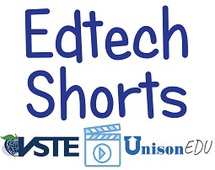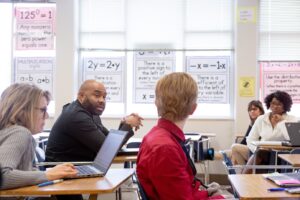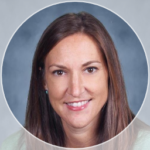 Update: 2/21/2022:
Update: 2/21/2022:
Check out our latest Shorts - Chrome Tips and Tricks and 90 Seconds Wordle. You can find all the videos on GoOpenVA or VSTE's YouTube Channel. Brought to you by #VSTE and #UnisonEDU
Looking for PD that fits your schedule? Well, it is here! Introducing Edtech Shorts! Short instructional videos you can view anywhere! Edtech Learning at your fingertips! Brought to you by #VSTE and #UnisonEDU.
You can find the videos at GoOpenVA or VSTE's YouTube Channel.










